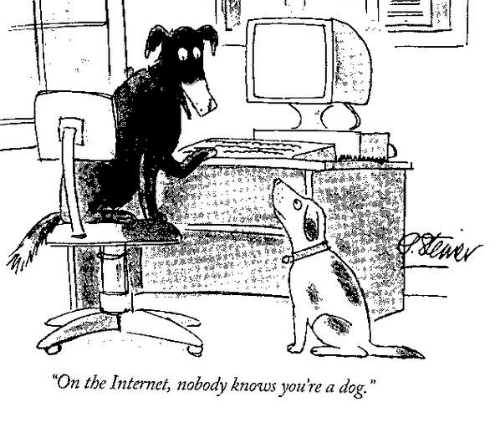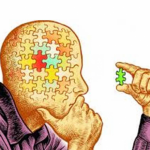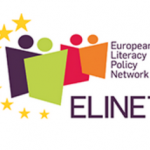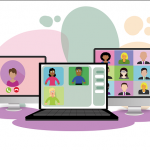Fake nieuws en stijlfiguren: oude en nieuwe geletterdheid
Vandaag verscheen een blog van mij in Neerlandistiek.nl Zie hier Ik kopieer het hieronder. English version at the bottom.
Fake nieuws en stijlfiguren: oude en nieuwe geletterdheid

Vandaag verscheen een blog van mij in Neerlandistiek.nl Zie hier Ik kopieer het hieronder. English version at the bottom.
Fake nieuws en stijlfiguren: oude en nieuwe geletterdheid
door Jeroen Clemens Reageer

Voor mijn Nederlandse volgers: Ik zit in het bestuur van Elinet, de European Literacy Policy Network, een Europees netwerk voor professionals op het gebied van geletterdheid. Zie meer hier. Ik ben daar ook Co-chair `Digital Literacy. Volg ons via onze website en via Mastodon.
ELINET is not happy with Twitter. We discussed this and decided to leave Twitter and move to Mastodon. We are waiting for you. Please share this message broadly in your networks.
Please find us here: https://mastodon.education/@ELINET. Our name (handle) is @ELINET@mastodon.education.
Why did we leave Twitter? Our board member and co-chair of Digital Literacy Colin Harrison formulated our thoughts very eloquently in a letter he’s send to the Guardian, a mayor UK newspaper, on Wednesday, November 2.… Read the rest
 English follows Dutch Kritisch kunnen lezen is in de digitale informatiewereld urgent. De betrouwbaarheid van informatie ligt onder vuur door de overdaad van ongecontroleerde informatie. Ook de toename van en het geloof in nepnieuws (Trump, oorlog Oekraïne) en de nieuwe technische mogelijkheden (deep fake, gemanipuleerde video’s en foto’s) maakt kunnen beoordelen van informatie urgenter en ingewikkelder. En het vertrouwen in waarheid en feiten ligt onder vuur. Er is sprake van waarheidsverval. Onderwijs moet en kan hier meer aandacht aan besteden.
English follows Dutch Kritisch kunnen lezen is in de digitale informatiewereld urgent. De betrouwbaarheid van informatie ligt onder vuur door de overdaad van ongecontroleerde informatie. Ook de toename van en het geloof in nepnieuws (Trump, oorlog Oekraïne) en de nieuwe technische mogelijkheden (deep fake, gemanipuleerde video’s en foto’s) maakt kunnen beoordelen van informatie urgenter en ingewikkelder. En het vertrouwen in waarheid en feiten ligt onder vuur. Er is sprake van waarheidsverval. Onderwijs moet en kan hier meer aandacht aan besteden.
Ik ben gestart met een lijstje met inspirerende bronnen voor het onderwijs (Nederlands en Engelse). Het wordt steeds aangevuld. Commentaar is welkom
Binnenkort publiceer ik drie nieuwe teksten over kritisch lezen online op het Handboek Didactiek Nederlands.… Read the rest
 English version below Na de overname door Elon Musk ben ik helemaal overgestapt van Twitter naar Mastodon. Mastodon is deel van een veel grotere Fedivers, een collectie van federatieve (ofwel onderling verbonden) servers voor webpublicaties en bestandshosting. Je kunt mij hier vinden https://mastodon.social/@jeroenclemens Ik had al eerder een account, maar ik gebruikte het nauwelijks. Maar de meeste interessante en leuke mensen gaan daar nu heen, waaronder ik.
English version below Na de overname door Elon Musk ben ik helemaal overgestapt van Twitter naar Mastodon. Mastodon is deel van een veel grotere Fedivers, een collectie van federatieve (ofwel onderling verbonden) servers voor webpublicaties en bestandshosting. Je kunt mij hier vinden https://mastodon.social/@jeroenclemens Ik had al eerder een account, maar ik gebruikte het nauwelijks. Maar de meeste interessante en leuke mensen gaan daar nu heen, waaronder ik.
Mastodon is een open sourcet sociaal netwerk waar mensen, net als op Twitter, profielen kunnen maken, berichten kunnen plaatsen, afbeeldingen of video’s kunnen delen en volgen. Maar in tegenstelling tot Twitter is Mastodon gedecentraliseerd en wordt het grotendeels gerund door vrijwilligers, wat betekent dat er geen hoofdbedrijf is dat het hele Mastodon-netwerk beheert.… Read the rest
 Ik ben een van de auteurs, lid van de board van Elinet en co-chair Digital Literacy.
Ik ben een van de auteurs, lid van de board van Elinet en co-chair Digital Literacy.
I’m one of the authors, member of the board of Elinet and co-chair Digital Literacy
ELINET Association is delighted to share the last publications it has prepared.
(1) Enhancing Digital Literacy Skills: Good Practices for Early and Primary Years Education. This comprehensive report gives an overview about relevant studies concerning the development of digital skills of children, addressing age groups of 0-3, 3-6 and 6-12 years. You can download it here
(2) Also available is a shorter version of this report with recommendations Using digital tools and experiences to improve comprehension and expression in young children: a review of the empirical evidence.… Read the rest
 As a member of FELA, Federation of European Literacy Associations and the co-chairs of the Webinars Steering Group I invite you to register for series of free webinars with leading researchers and practitioners in Autumn 2022. The amount of places is limited. Most of the webinars will be recorded registered and available on the FELA website www.literacyeurope.org after the event.
As a member of FELA, Federation of European Literacy Associations and the co-chairs of the Webinars Steering Group I invite you to register for series of free webinars with leading researchers and practitioners in Autumn 2022. The amount of places is limited. Most of the webinars will be recorded registered and available on the FELA website www.literacyeurope.org after the event.
FELA organizes again a series of professional thematic online webinars to share the insights and experiences of the FELA community with the FELA community and beyond. Topics are: Family Literacy and Children’s Literature goes Digital. … Read the rest

U bent van harte uitgenodigd om deel te nemen aan het seminar Reading and Learning for all Ages in Ljubljana op 29 oktober, ook beschikbaar via Zoom. Ik geef zelf ook een presentatie. Die zal ik later ter beschikbaar stellen.
You are cordially invited to join the seminar Reading and Learning for all Ages in Ljubljana, October 29, also available through Zoom.
READING AND LEARNING FOR ALL AGES
Date: Venue: Friday, 29 October, 2021
16:00 Ljubljana/ Amsterdam / 15:00 London, Dublin / 17:00 Helsinki, Athens
Venue: Filozofska fakulteta/Faculty of Arts, Ljubljana, Aškerčeva 2 Room 2
Online (Zoom): https://uni-lj-si.zoom.us/j/91257945101
Meeting ID: 912 5794 5101
Programme
16:00 Opening Savina Zwitter, Bralno društvo Slovenije
Máirín Wilson, Federation of European Literacy Associations
16:05 Greg Brooks (United Kingdom Literacy Association/Zoom),
Voces paginarum: Origin and limits of the notion that most reading in antiquity and the Middle Ages was oral
We are so used to reading (beyond the initial stages) being silent that it seems strange that some scholars thought that most people in antiquity and the Middle Ages who could read, routinely read aloud, whether they were alone or in company.… Read the rest

The Croatian Reading Association (CroRa) organized the successful conference Digital literacy and strategies for digital inclusion, on Wednesday, September 8, 2021 in Zagreb. I talked, as a special guest, about Digital literacy: a challenge for all of us.
In the last few decades, in modern society, we have been witnessing many significant changes in reading and writing initiated by the digital revolution. Since digital world is becoming more and more dominant over physical world it is important to pay attention to digital inclusion, so that every member of society, including those in unfavourable positions, would have access to informational and digital technologies.… Read the rest
 FELA organises a series of free webinars with leading researchers and practitioners exploring interesting topics in the field of literacy. Topic: Literacy and Online Education. From Technology to Critical Thinking. Dates: May 12, 13 & 14 at 17.00 – 19.10 CET. You can download the long version HERE.
FELA organises a series of free webinars with leading researchers and practitioners exploring interesting topics in the field of literacy. Topic: Literacy and Online Education. From Technology to Critical Thinking. Dates: May 12, 13 & 14 at 17.00 – 19.10 CET. You can download the long version HERE.
I’m member of the Webinar Steering Group of FELA, and one of the organisers of the webinars. I will give a presentation on May 12, 17.45 on Digital Literacy, Rethinking the Curriculum of Language teaching.
WEBINAR REGISTRATION (closed):
Renate Valtin and Tiziana Mascia Two perspectives to fostering children’s literacy
Last blog on the ELINET Website . I am chair digital literacy at ELINET
In the knowledge-based societies of the 21st Century, the rapid spread of new technologies and a constantly changing work environment, literacy learning is no longer limited to childhood and adolescence; but must be recognized as a lifelong need and requirement. However, in early childhood in the family and in preschool and the first years of primary school the foundation is laid for the rest of development. There is a vast body of literature suggesting measures, activities and methods to foster literacy in young children.… Read the rest